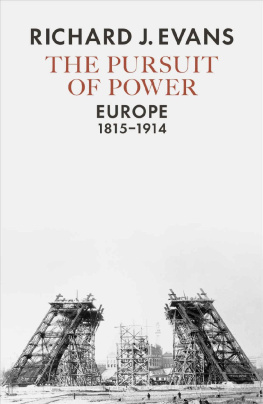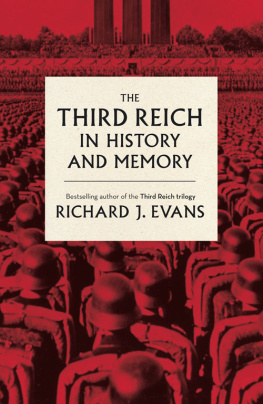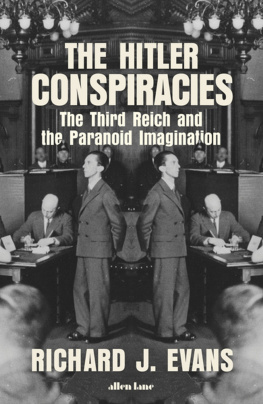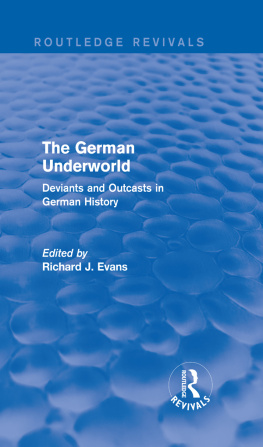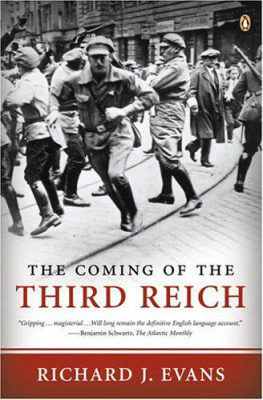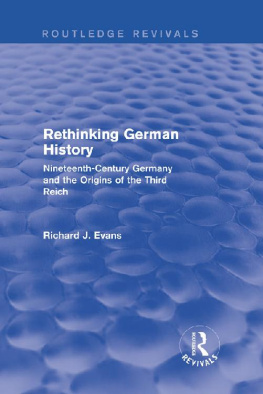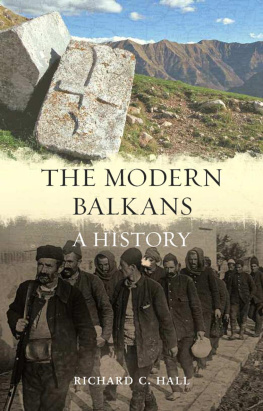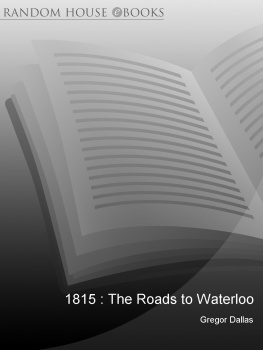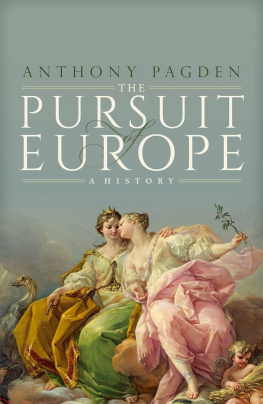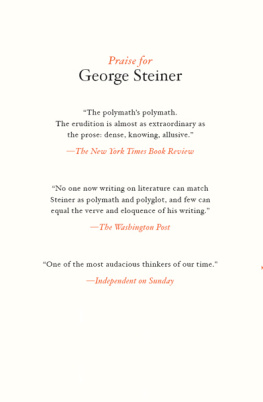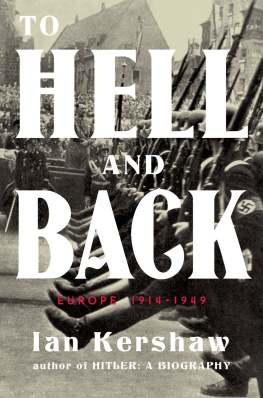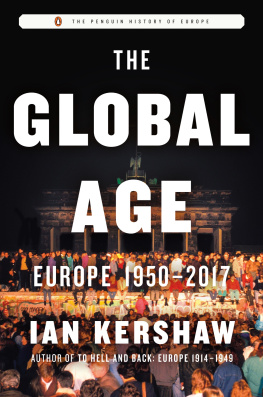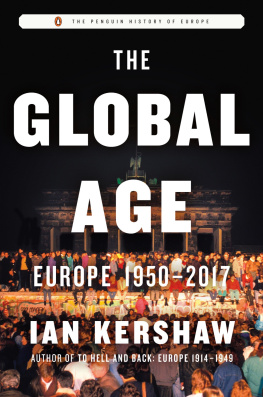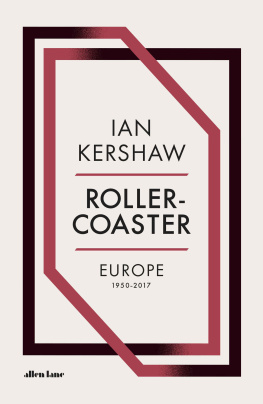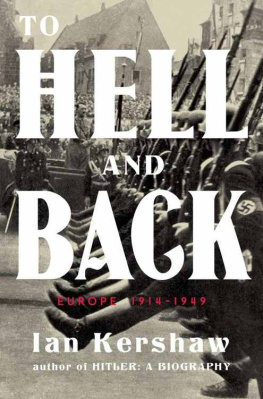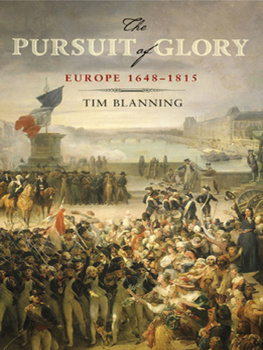Richard J. Evans
THE PURSUIT OF POWER
Europe 18151914
THE PENGUIN HISTORY OF EUROPE
General Editor: David Cannadine
- SIMON PRICE AND PETER THONEMANN: The Birth of Classical Europe: A History from Troy to Augustine
- CHRIS WICKHAM: The Inheritance of Rome: A History of Europe from 400 to 1000
- WILLIAM JORDAN: Europe in the High Middle Ages
- ANTHONY GRAFTON: Renaissance Europe*
- MARK GREENGRASS: Christendom Destroyed: Europe 15171648
- TIM BLANNING: The Pursuit of Glory: Europe 16481815
- RICHARD J. EVANS: The Pursuit of Power: Europe 18151914
- IAN KERSHAW: To Hell and Back: Europe 19141949
- IAN KERSHAW: Fractured Continent: Europe 1950The Present*
*not yet published
Eric Hobsbawm
19172012
in memoriam
Contents
List of Illustrations
List of Maps
Preface
This book is a history of Europe from 1815 to 1914, following on sequentially in the Penguin History of Europe from the previous volume in the series, The Pursuit of Glory (2007), which covers the period 1648 to 1815. As the author of that brilliant book, my Cambridge colleague Tim Blanning, remarks, every history of Europe has to start at some arbitrary date, but some dates are more arbitrary than others. We speak habitually of the nineteenth century or the twentieth century, but historians know that the period 1801 to 1900 or 1901 to 2000 has no real meaning beyond the merely chronological. History is full of loose ends, and even the outbreak and conclusion of major wars that so often provide the terminal dates for histories covering discrete segments of the European past, including this one, leave many issues unresolved. Different aspects of history have different chronologies, and a date that has a meaning in political or military or diplomatic history may have very little significance in social or economic or cultural history. French historians of the Annales school have become accustomed to speaking of an immobile history which persisted well into modern times in many parts of Europe, so that despite the fall of the ancien rgime in European political systems at the end of the eighteenth century, the ancien rgime conomique et social persisted well into the second half of the nineteenth century. It took until this point, for example, for serfdom to disappear from the scene in most of Europe, while the long-established demographic pattern of high birth rates and high death rates did not begin to change, except in France, until the so-called demographic transition of the decades after 1850. On the other hand, industrialization was a marginal process confined to small pockets of the European economy until the same period. Some historians, indeed notably Arno Mayer in his book The Persistence of the Ancien Rgime (1981) have argued that the dominance of traditional aristocratic elites remained all the way up to the First World War, so that not much of significance changed in the political sphere either, despite all the surface turmoil of the era. But Mayers view has not been widely accepted by historians: change there certainly was in nineteenth-century Europe, not just in politics but in other spheres of life as well.
Some, indeed, have decided that the most meaningful period to study is the Age of Revolution, to quote the title of the first volume of Eric Hobsbawms survey of the years 1789 to 1914, published in 1962. Hobsbawms periodization was followed by Jonathan Sperber in his Revolutionary Europe (2000), covering the years 17891848, the same period as Hobsbawms first volume. Yet there is a price to pay for choosing these years, for what came after was a very different Europe, one much less easy to conceptualize in a single framework. Not by chance, Sperbers follow-up volume has a wordy title that conveys, no doubt unconsciously, the difficulty he encountered in finding a unifying theme: Europe 18501914: Progress, Participation and Apprehension (2008). Hobsbawm went on to write two more volumes, The Age of Capital (1975) covering the years 1848 to 1875, and The Age of Empire (1987), taking the story up to the First World War. Anyone who attempts to write a history of nineteenth-century Europe has to confront these three magnificent books, which tower over the literature on the period. And, with his uncanny gift for conceptual innovation, Hobsbawm went on to characterize the whole period covered by his trilogy as the long nineteenth century, a model followed by many textbooks and primers, for example William Simpson and Martin Joness Europe 17831914 (2000). The long nineteenth century is, however, a broken-backed century, divided into two very different halves by the 1848 Revolutions. Not surprisingly, like Sperber, many historians covering the period from the French Revolution or the defeat of Napoleon to the First World War have given up the attempt to find any kind of conceptual unity, and have chosen anodyne titles such as Europes Uncertain Path (2012), to quote R. S. Alexanders recent political narrative.
Through most of the twentieth century, historians regarded the rise of nation states and the conflicts between them as the central features of European history in the nineteenth century. The triumph of nationalism forged new political and cultural entities and inspired revolts against large and, it seemed, outmoded multinational empires, revolts against oppression by other nationalities or ambitions to achieve dominance over them. This model of the nation state was exported across the globe in the twentieth century, making its emergence in Europe in the nineteenth seem even more important. Historians once saw this process in positive terms, putting celebratory accounts of the unification of Italy and Germany, the growth of Czech and Polish national consciousness, and other products of the age of nationalism at the centre of their narrative. As national and ethnic rivalries spilled over into the vast conflagration of the Second World War, however, the rise of nationalism appeared in a darker light, a view underlined by the Balkan wars of the 1990s. But since then we have come increasingly to live in an age of globalization, as the barriers created by the Cold War have crumbled, international institutions, worldwide means of communication, multinational companies, and many other influences have eroded national boundaries and begun to bind us all together as a global human community. Since the turn of the century, this has also altered our vision of the past, which historians have come to see increasingly in a global perspective. The call for the writing of global history is not in itself new: it was issued as long ago as the 1970s by the French historian Marc Ferro and was present in the concept of Universalgeschichte (universal history) as practised by Leopold von Ranke in the nineteenth century or Arnold Toynbee and William H. McNeill in the twentieth. But a global history that links the different parts of the world rather than telling their discrete stories has emerged only recently, as historians have begun to examine subjects such as the effects of empire on European economies, societies, cultures and political systems, notably but not exclusively those of Britain; the global economic ties that bound Europe to other parts of the world in a nexus of mutual interaction; and the rise of worldwide empire as a common European process rather than one specific to any particular European nation. Historians have also been busy rewriting the history of individual European nations in a global context, emphasizing the effects of European diasporas the millions of Europeans who emigrated to other parts of the globe on the mother country, the infusion of European nationalism with elements of racial theory derived from the experience of colonization in Africa or Asia, and the emergence of global geopolitics as a key factor in relations between European states.

